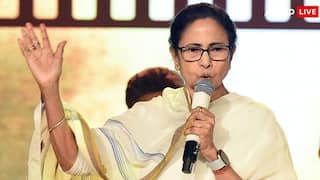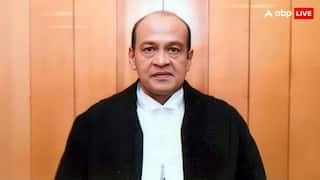NSA Doval Meets Top Chinese Official Wang Yi, Seeks LAC Resolution Ahead Of G20 Summit
NSA Ajit Doval has met top Chinese official and negotiator Wang Yi In Johannesburg, South Africa ahead of the G-20 Summit in India which is likely to be attended by Chinese President Xi Jinping.

New Delhi: National Security Advisor Ajit Doval Monday met Wang Yi, Director of the Office of the Foreign Affairs Commission of the Communist Party of China Central Committee, in Johannesburg, South Africa to seek a resolution to the ongoing border standoff ahead of the G20 Summit that New Delhi will be hosting. They met on the sidelines of BRICS NSAs’ Meeting in Johannesburg Monday.
During the meeting, Doval has told Wang Yi that the border situation has "eroded strategic trust" between both countries impacting both public as well as political basis of the bilateral ties.
"NSA conveyed that the situation along the LAC in the Western Sector of the India-China boundary since 2020 had eroded strategic trust and the public and political basis of the relationship. NSA emphasised the importance of continuing efforts to fully resolve the situation and restore peace and tranquility in the border areas, so as to remove impediments to normalcy in bilateral relations. The two sides agreed that the India-China bilateral relationship is significant not only for the two countries but also for the region and world," said a statement issued by the Ministry of External Affairs Tuesday.
New Delhi has asked Beijing “to find a way in resolving the border standoff “at the eastern sector of Line of Actual Control (LAC) in Ladakh, the de facto boundary line between India and China, before the G20 Summit takes place on September 9 and 10, sources have told ABP Live. India and China have been engaged in the standoff since April 2020.
On the issue of the upcoming G20 Summit, while it is still unclear if Russian President Vladimir Putin will be coming to India for the summit, New Delhi is pinning hopes on Chinese President Xi Jinping’s attendance here as that will also help India in hammering out a joint communiqué post the summit, source said.
Both China and Russia have opposed inclusion of the paragraphs on the Russia-Ukraine war that was mentioned in the Bali Declaration in successive G20 meetings that took place under India’s presidency.
During the recent two meetings of the G20 on Energy Labour and Employment and Energy, Russia has refused to accept inclusion of the paragraphs on the Ukraine War that also called for “unconditional withdrawal from the territory of Ukraine”.
While on the other hand, China has categorically stated that “G20 is not the right platform to address security issues and opposed the inclusion of the geopolitical related content.”
According to the sources, such consistent refusal by the Chinese to cooperate in bringing out a joint declaration has put a question on India's ability to bring together all these leaders to sign upon the main Summit declaration.
Apart from this, India has also asked China to resolve the border standoff in terms of coming up with a concrete plan on disengagement and de-escalation from the remaining friction points. This is because India wants that when both the leaders – Prime Minister Narendra Modi and President Xi – meet in New Delhi they get something concrete to discuss during a bilateral meeting between them on the margins of the Summit, sources added.
According to the Chinese government’s official readout, Doval has told Wang Yi that India is “willing to work with the Chinese side to find a fundamental way to resolve the border situation in the spirit of mutual understanding and mutual respect, look at the overall situation and the long-term, promote the improvement and development of bilateral relations as soon as possible, and make positive contributions to maintaining world peace and prosperity.”
Xi, Modi Reached ‘Important Consensus’ In Bali, Says Wang Yi
During the meeting with Doval, Wang Yi, who is China's former Foreign Minister, told him that Beijing “will never seek hegemony” and stressed that China and India are “two major forces in the process of multi-polarization,” according to the Chinese government’s official readout.
“At the end of last year, President Xi Jinping and Prime Minister Modi reached an important consensus on stabilizing China-India relations in Bali,” the statement said, adding that both countries “should follow the development trend of the times and correctly grasp the development direction of bilateral relations.”
Both Xi and Modi came face to face in Bali and had even exchanged pleasantries during a dinner reception in Bali, Indonesia on the occasion of the G20 Summit there last year.
The statement also said, “The two sides should adhere to the strategic judgment of the leaders of the two countries that they do not pose a threat to each other, and they are each other's development opportunities, truly implement the consensus on stabilizing bilateral relations into specific policies, and translate them into concerted actions by various departments and fields, enhance strategic mutual trust, focus on consensus and cooperation, overcome interference and difficulties, and promote the return of bilateral relations to the track of healthy and stable development at an early date.”
“China will never follow the old path of some countries seeking hegemony, and is willing to work with developing countries including India to jointly support multilateralism and the democratization of international relations, and promote the development of the international order in a more just and reasonable direction,” Wang Yi said.
Related Video
India@2047 Summit: Modi Calls for Innovation, Reforms, and National Resolve






































